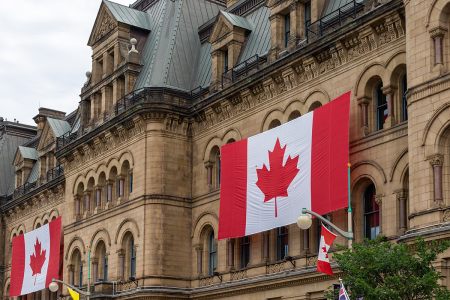Canadian school board removes document linking Christianity, education with 'white supremacy'

The largest school board in Canada has removed an official document from its website that equated the Canadian education system with “white supremacy” and listed Christianity as a trait of “a colonial structure that centers whiteness.”
A copy of the 2024 handbook from the Toronto District School Board (TDSB) titled “Facilitating Critical Conversations: A Teaching Resource for Challenging Oppression in Toronto District School Board Classrooms” went viral for its “anti-Oppressive approach” which named “Christian” as a one of the characteristics of an overarching “dominant culture” which “must be actively decolonized.”
Defined in its introduction as a “teaching resource” for educators and other staff to “fulfill this commitment of anti-oppressive practices by facilitating critical conversations in their classrooms,” the 44-page TDSB handbook cites, among other resources, the Southern Poverty Law Center, an organization that has faced immense criticism for labeling a number of Christian conservative groups and public figures as hateful.
Among the “core beliefs” outlined in the opening pages of the handbook are:
“Education is a colonial structure that centers whiteness and Eurocentricity and therefore it must be actively decolonized”
“White Supremacy is a structural reality that impacts all students and must be discussed and dismantled in classrooms, schools, and communities”
“Schooling in North America is inherently designed for the benefit of the dominant culture (i.e., white, middle-upper class, male, Christian, cisgender, heterosexual, able-bodied, neurotypical, etc.)”
“Race matters — it is a visible and dominant identity factor in determining peoples’ social, political, economic, and cultural experiences”
Authored by the board’s “Equity, Anti-Racism and Anti-Oppression Department,” the handbook calls on educators to “prioritize students who are from non-dominant identity groups” and to interact with students based on their own “identity group.”
The handbook also references what it describes as “Canada’s racist history and laws” and espouses radical gender ideology by identifying heterosexuality or “the set of ideas, social norms, beliefs, and culture that govern people whose gender identity corresponds to the one assigned at birth” as a “type of social construction.”
“Facilitating Critical Conversations” is a revision of a 2003 TDSB document which, by contrast, contains a single reference to the terms "racism," “white,” “black” and “sexual orientation,” respectively.
Following the updated handbook’s release and ensuing backlash, a TDSB spokesman said the document has been removed from the school board’s website after school officials “received feedback about some of the language used.”
“As a result, we have temporarily removed it from the internal website so that a review can be completed with an eye to better aligning it with the Education Act, Ontario Human Rights Code and TDSB’s policies and procedures — while maintaining our commitments to achievement, well-being, Human Rights, and equity for all,” TDSB spokesman Ryan Bird told CP on Tuesday.
Formerly known as English-language Public District School Board No. 12 prior to 1999, TDSB is the English-language public school board for Toronto and serves approximately 600 school and roughly 238,000 students.
More than a quarter of students served by TDSB were born outside of Canada and more than 100 languages are spoken by TDSB students and families, according to the organization.
In a separate story, last month, a diversity officer at one of the top-ranked hospitals in the United States apologized after sending out a newsletter in which Christians were listed as a “privileged” group.
In the January edition of the monthly “Diversity Digest” newsletter, Dr. Sherita Hill Golden, the chief diversity officer at Johns Hopkins Medicine (JHM) Office of Diversity, Inclusion and Health Equity, listed “Christians, white people, able-bodied people,” and “males” as examples of groups who enjoy “privilege,” which the email defined as “a set of unearned benefits" given to people who are in a specific social group.
Other groups of “privilege” listed in the email included “heterosexuals, “middle or owning class people,” “middle-aged people,” and “English-speaking people.”
In a statement to CP, a JHM spokesperson said, “The January edition of the monthly newsletter from the Johns Hopkins Medicine Office of Diversity, Inclusion and Health Equity used language that contradicts the values of Johns Hopkins as an institution.”
Ian M. Giatti is a reporter for The Christian Post and the author of BACKWARDS DAD: a children's book for grownups. He can be reached at: ian.giatti@christianpost.com.





















